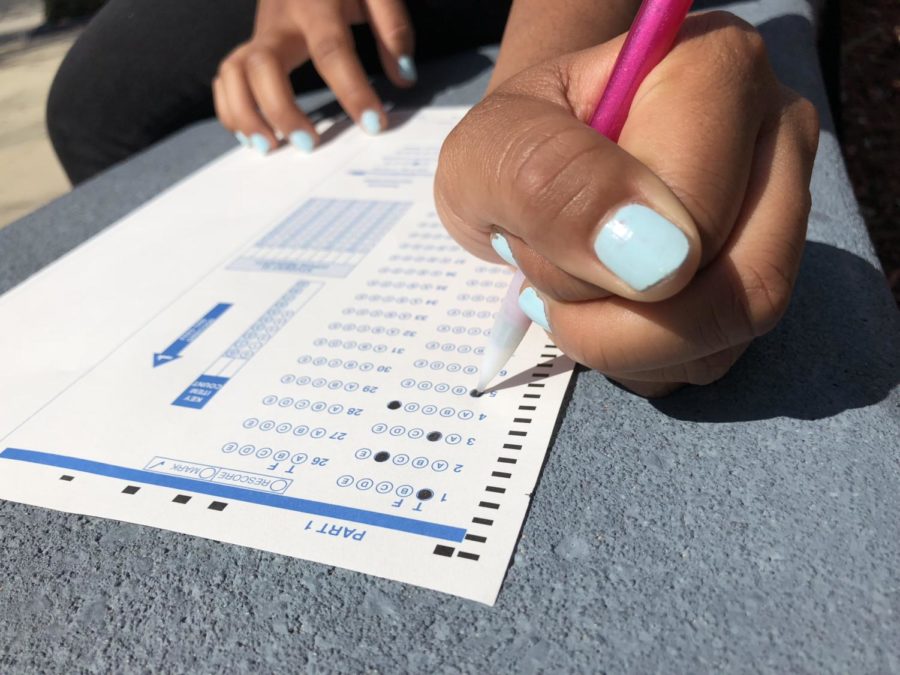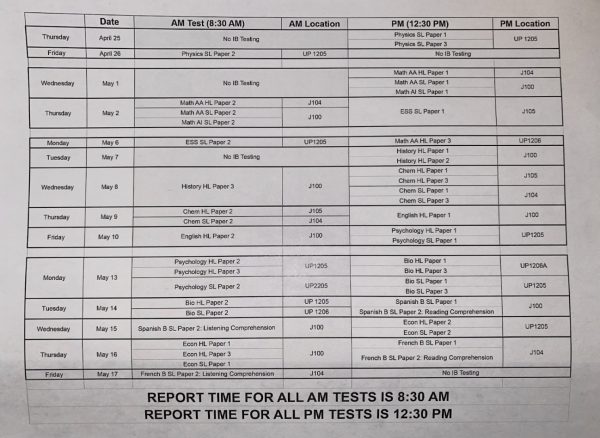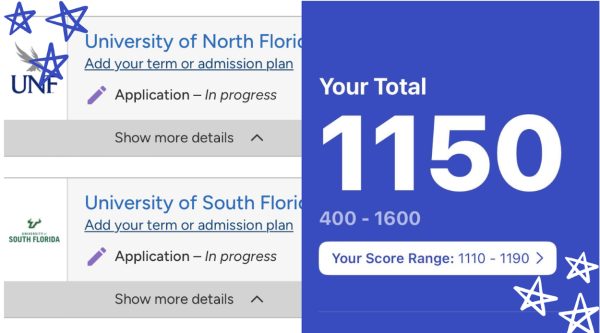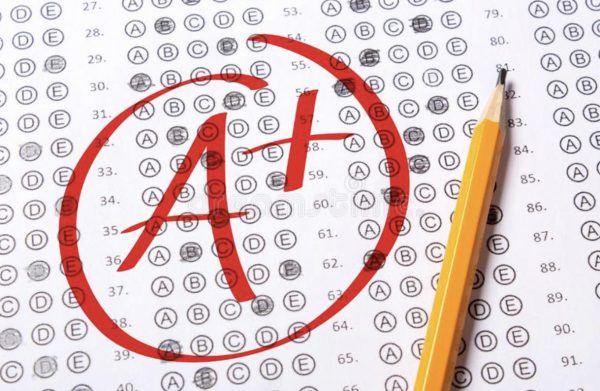ACING THE SAT: TIPS FROM THE PROS
February 16, 2018
The Scholastic Aptitude Test, most commonly referred to as the SAT, is a standardized test that students take to increase their chances of earning college admissions. The SAT assesses a student’s math, writing, and reading levels. There are two sections to the test, each scored on a 200 to 800 point scale, which add up to a total perfect score of 1600. The SAT is a stressful but important test for students; many prepare for years ahead to increase their scores.
Juniors and seniors can take the SAT at any point, as tests are offered multiple times a year. Each October, students of all grades take the PSAT provided by SHS in order to familiarize themselves with the format of the test and determine their areas for improvement. Students are allowed to take the SAT as many times as they desire until they get their preferred score. Students can prepare for the SAT by taking practice tests, using Khan Academy, or using content in SAT/PSAT books written by CollegeBoard and other companies.
Students are overworked and overwhelmed due to high school work, and for many, the SAT represents just another source of stress. Students feel pressured to not only score well on the exam in order to get into their top college choices, but also to focus on studying for their academic classes in school. For many, their future after high school depends upon their SAT score.
Recognizing this struggle, several teachers, including Mrs. Kelly Meahl, Ms. Donna Noll, and Mrs. Kierstin Bordner, prepare students by implementing a PSAT crash course each year. The PSAT crash course is offered to juniors on the three Wednesdays prior to the test, with specialized sessions for math, reading, and writing. Students who attend these sessions are given two practice tests and additional tutoring.
Meahl explained that she starts preparing her students for the SAT during the first nine weeks of school. To build critical reading skills, she provides practice tests in class and goes over the answers. She advises students to increase their reading scores by reading more in general.
“It never hurts to do practice tests. Khan Academy offers free prep. You can leak your PSAT scores to Khan Academy and it’ll personalize what you need to work on,” suggested Meahl.
Senior Sorin Cho, who achieved a perfect score on his SAT, advises that students should take the practice tests released by College Board since they will be the most similar to the actual SAT. Cho also highly recommends taking the ACT as well, since some students score higher on the ACT. Most colleges do not have a preference between the SAT and ACT.
“I do not recommend trying to cram a ton. To be honest, it’s unlikely anyone can improve their test-taking skills in one night. A good night’s sleep is the most important thing to prepare for the test,” said Cho.
Similarly, senior Ryan Lam achieved a perfect score through super-scoring two of his SAT scores. His advice is to improve by practicing.
“For about a month before the test, each weekend I would take a full practice test and then spend another hour or two going over it, looking specifically at the questions I missed and why I missed them,” said Lam.
It is important to understand that one doesn’t need to stress excessively for a perfect score. A 1600 is not a guaranteeing factor for college admissions, nor do colleges expect a perfect score. Instead, students should focus on meeting the targeted SAT range for their future college, and building life-long skills along the way.


































